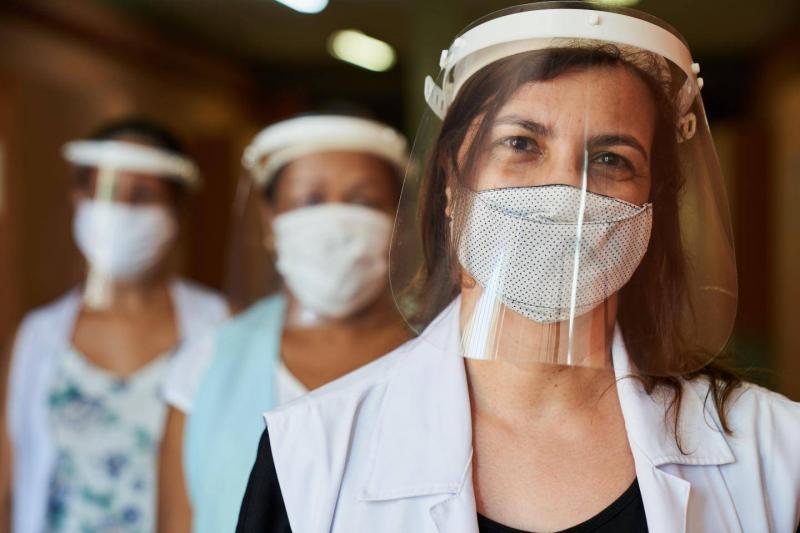Two new variants of the Omicron strain have caused a rapid increase in COVID-19 infections worldwide. The new Omicron variants, BA.4 and BA.5, emerged in South Africa and may soon become the most prevalent in Europe and the United States, according to experts' forecasts.
#### What Are These Variants?
Since the discovery of COVID-19, the virus has mutated and changed its form, with genetic copies emerging due to this process referred to as variants. To date, the principal variants that have emerged from COVID-19 include Alpha and Delta, which led to significant waves of infection. BA.4 and BA.5 are the latest variants of COVID-19, and they are closely related to the Omicron variant, which is where the experts' concerns stem from. The World Health Organization added BA.4 and BA.5 to its COVID-19 variant list in March, categorizing them as variations of concern in Europe.
#### Where Are They Spreading?
The BA.4 and BA.5 variants were first detected in South Africa earlier this year, and they seem to be spreading faster than other variants. These variants have found their way into most European countries, and it appears their ability to cause COVID-19 infections will soon surpass other variants. This has already occurred in Portugal, where the BA.5 variant is the most prevalent among the population. In the United States, officials report an increase in COVID-19 cases due to the new BA.4 and BA.5 variants. Preliminary indicators in the United Kingdom suggest an expected rise in COVID-19 infections driven by the spread of these variants. Australia has also recorded COVID-19 infections due to the spread of BA.4 and BA.5.
#### How Dangerous Are They?
Experts do not have definitive evidence regarding the severity of illness linked to the Omicron-derived BA.4 and BA.5 variants, but they are not considered more lethal than other COVID-19 variants. Most people have developed immunity against COVID-19, either through past infections or vaccination, which helps reduce the overall severity of infections. However, the new BA.4 and BA.5 variants show a greater capacity for spread, partly due to waning immunity among people and partly due to the mutations the virus has undergone. Many countries have lifted their COVID-19 restrictions, leading to increased social interactions that enhance the virus's chances of transmission. The BA.4 and BA.5 variants can infect individuals even if they have recently recovered from an Omicron infection. A new wave of transmission could result in a higher number of hospitalizations and additional deaths.
#### How to Prevent Infection
As with other COVID-19 variants, the risk of severe illness is higher for older adults or those with underlying health conditions. Although currently available vaccines are not considered a perfect solution, they remain the best defense available right now. These vaccines have helped mitigate the risk of severe COVID-19 infections caused by any of its variants, including Delta, Alpha, Beta, and Gamma. Doctors recommend receiving the recommended number of vaccine doses to maximize protection against existing or new variants.
#### How Do Variants Arise?
For viruses to replicate, they must create copies of themselves, but this process is not performed perfectly, leading to genetic changes that result in a new variant. This replication error can give the resulting variant an advantage, contributing to its proliferation. The more opportunities the coronavirus has to replicate within humans, the greater the chances of new variants emerging.




